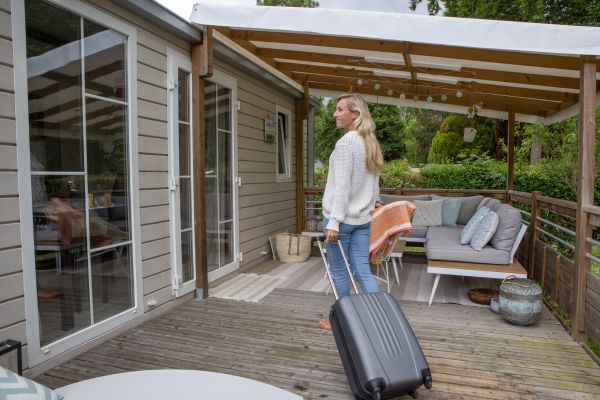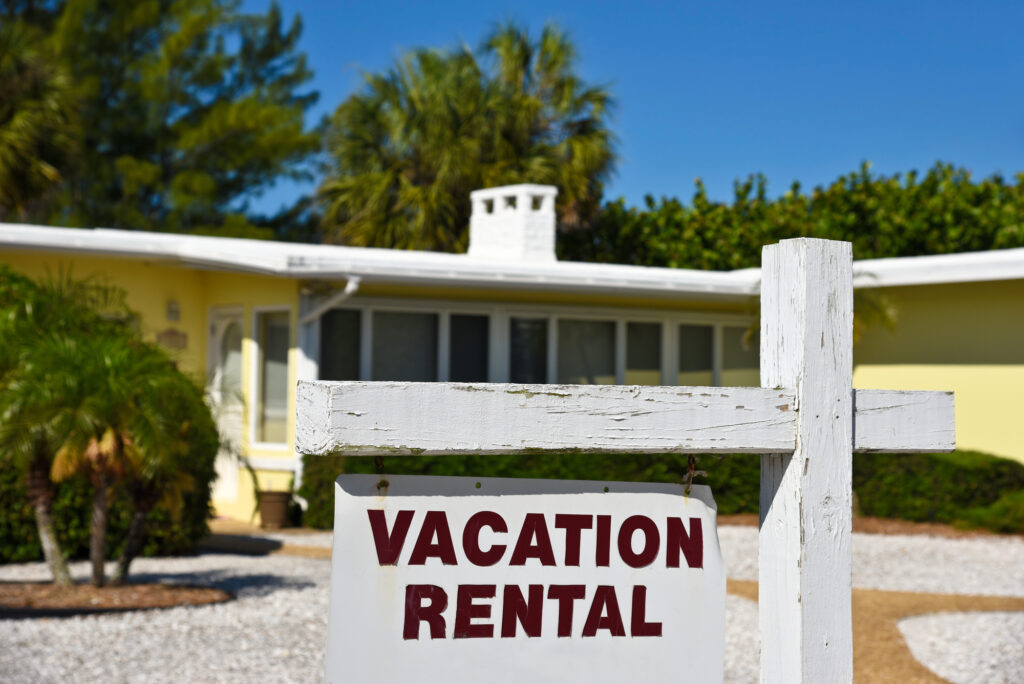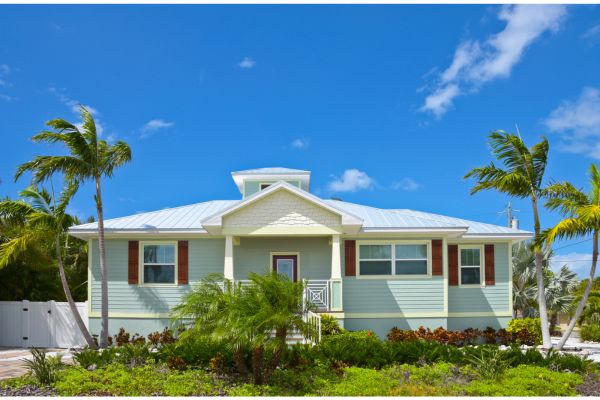Investing in a vacation rental property can be an alluring prospect, offering the promise of a lucrative income stream and a slice of paradise to call your own. Picture this: a charming beachfront cottage or a cozy cabin nestled in the mountains, attracting eager travelers seeking unforgettable experiences.
However, there are also crucial considerations that demand a discerning eye before leaping into the world of vacation rental investments. From meticulous market research and location selection to navigating the intricacies of property management and local regulations, the journey to profitable success can be challenging to navigate. But with some caution and consideration, you should be able to easily decide whether or not investing in vacation is right for you.

Investing in Vacation Property Rentals: The Basics
Investing in vacation property rentals in Canada can be an appealing opportunity for savvy investors. The country’s vast and diverse landscape, coupled with its thriving tourism industry, makes it an attractive destination for travelers year-round. However, before diving into this venture, understanding the basics is crucial.
Firstly, location is paramount. Research popular tourist spots in Canada, such as Banff, Whistler, or Niagara Falls, as they attract more visitors. Proximity to amenities, attractions, and transportation hubs can significantly impact the property’s rental potential.
Secondly, familiarize yourself with local regulations and zoning laws. Certain areas may have restrictions on short-term rentals or require permits, affecting your investment strategy.
Additionally, calculate your finances carefully. Beyond the initial purchase cost, consider ongoing maintenance, property management fees, and potential periods of vacancy.
Lastly, decide whether self-management or hiring a property management company suits your needs. Self-management offers more control but requires considerable time and effort, while a management company can handle day-to-day operations but comes with additional expenses.
If these considerations sound like something you can handle, and the thought of making money by renting out vacation property appeals to you, then investing in vacation rental properties might be right up your alley. However, there are still a large number of details you should make sure you understand before throwing your hat in the ring.
Vacation Rental Property Management
Effective management is essential for maximizing rental income, maintaining the property’s condition, and delivering a positive experience to guests.
Marketing the property is crucial. Utilizing various platforms, such as Airbnb, VRBO, or Booking.com, can help reach a broader audience and increase bookings. Professional photos, engaging descriptions, and competitive pricing are essential to attract potential renters.
Furthermore, guest communication and support are paramount. Promptly responding to inquiries, providing necessary information, and addressing concerns enhance guest satisfaction and increase the likelihood of positive reviews and repeat bookings.
Property maintenance is another crucial element. Regular inspections, cleaning, and promptly addressing maintenance issues will ensure the property remains in top condition, enhancing its appeal to guests.
Additionally, managing finances is vital. Tracking income, expenses, and taxes accurately helps maintain profitability and simplifies accounting processes.
Investing in technology can streamline management tasks. Property management software can assist with bookings, calendars, and communication, increasing efficiency and organization.
Average Property Management Fees for Vacation Rentals
Average property management fees for vacation rentals in Canada typically range from 20% to 30% of the rental income. These fees cover various services, including marketing, guest communication, check-ins, cleaning, and maintenance.
The specific percentage may vary based on the property’s location, size, and amenities, as well as the level of services provided by the management company. Some companies may charge a fixed fee per booking instead of a percentage.
Pros and Cons of Owning a Vacation Rental Property
Pros
Owning a vacation rental property in Canada offers numerous advantages for investors and property owners alike. Some of the key pros include:
- Rental Income: Generate a steady income stream through short-term rentals, especially during peak tourist seasons.
- Personal Use: Enjoy the property for personal vacations while still earning rental income for the rest of the year.
- Tax Benefits: Take advantage of tax deductions on property-related expenses and depreciation.
- Diversification: Add diversity to an investment portfolio by investing in the real estate market.
- Long-term Investment: Vacation rental properties can serve as long-term assets with the potential for increasing returns over time.
- Flexibility: Adjust rental rates and availability to align with personal preferences or market demand.
- Hedging against Inflation: Real estate investments can act as a hedge against inflationary pressures.
Cons
While owning a vacation rental property in Canada has its perks, there are also some challenges and potential drawbacks that investors should consider. Here are the cons of owning a vacation rental property:
- Seasonal Demand: Demand for vacation rentals can be highly seasonal, leading to potential periods of low occupancy and reduced rental income during off-peak seasons.
- Property Management: Managing a vacation rental property can be time-consuming and requires handling tasks like marketing, guest communication, and property maintenance.
- Market Volatility: Tourism trends and the real estate market can be unpredictable, impacting rental demand and property values.
- High Initial Investment: Acquiring a vacation property in a popular tourist destination can involve a significant upfront cost.
- Regulatory Challenges: Some regions may have stringent regulations on short-term rentals, requiring permits or imposing restrictions.
- Competition: Popular tourist areas often face intense competition, making it crucial to differentiate your property and attract guests.
- Vacancy and Income Fluctuations: Unexpected cancellations or gaps between bookings can lead to income fluctuations.
- Liability Risks: Vacation rental owners may face liability issues if guests encounter accidents or damages on the property.
- Taxes and Fees: Property taxes and additional fees can impact the overall profitability of the investment.
- Dependence on Tourism: Economic downturns or travel restrictions can adversely affect rental income.
Best Place to Invest in Vacation Rental Property in Canada
When seeking the ideal location for investing in a vacation rental property in Canada, several regions stand out due to their unique offerings and high demand among travelers. One such place is Whistler, British Columbia, renowned for its world-class ski resorts and breathtaking mountain scenery, making it a year-round destination for vacationers seeking outdoor adventures.
Another attractive option is Banff, Alberta, nestled amidst the majestic Canadian Rockies. This area draws visitors with its blend of thrilling activities and opportunities for relaxation, making it a sought-after location for vacation rentals throughout all seasons.
For those looking for a more tranquil and culturally rich setting, Niagara-on-the-Lake, Ontario, is a promising choice. Its picturesque vineyards, historical charm, and cultural attractions make it a popular destination for travelers seeking a peaceful and enriching experience. It is also the of the world-famous Shaw Festival, the second-largest repertory theatre company in North America. This could dramatically increase your potential earnings during the summer theatre season.
When considering investing in a vacation rental property, exploring the distinctive features and appeal of each region can help investors make an informed decision based on their preferences and investment goals.
Conclusion
When contemplating whether to invest in a vacation rental property, careful consideration and thoughtful planning are crucial. Take time to evaluate your financial situation, risk tolerance, and investment objectives. Start by conducting thorough market research to identify prime locations with high rental demand and to understand the competition and local regulations.
Next, perform a comprehensive financial analysis, factoring in property acquisition costs, maintenance expenses, management fees, and taxes. Ensure that projected rental income can cover these expenses and provide a satisfactory return on investment.
Consider the time commitment involved in owning a vacation rental property, especially if you plan to manage it yourself. Assess whether you have the availability and willingness to handle the responsibilities.
Seek advice from experienced investors, real estate professionals, and property managers to gain insights and make informed decisions. With thorough research and a well-thought-out strategy, investing in a vacation rental property can be a lucrative and rewarding venture.










